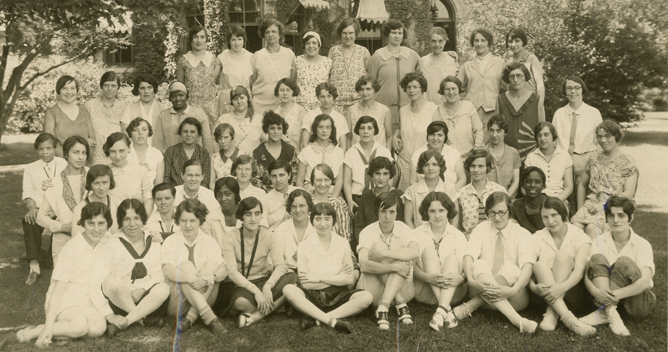Speaker Bio
Joanna DiPasquale is the Digital Projects Librarian for Vassar College Libraries, where she helps to implement a broad range of digital initiatives. She has over twelve years experience in the creation and implementation of digital libraries of varying subject matter and material type. Joanna holds degrees in history and mathematics, and received her MA from New York University and her MLIS from Rutgers University.
Jennifer Palmentiero is the Digital Services Librarian at the Southeastern New York Library Resources Council where she coordinates the Council's digitization service, Hudson River Valley Heritage (HRVH; www.hrvh.org). Visitors to HRVH can search or browse approximately 35,000 historical resources contributed by over 40 cultural heritage organizations in the Hudson Valley region of New York. Jennifer provides training and support to partner organizations on all aspects of digitization: copyright considerations, project management, scanning, and metadata creation.
Laura Streett is the Archivist at Vassar College, where she has worked since 2004. She has an M.A. in History from the University of Maine and an M.L.S. (Master’s of Library Science) from Simmons College, and has previously held positions at Cornell University as well as Smith College. Her current responsibilities include arrangement and description of Vassar’s archival and manuscript collections, reference assistance, classroom instruction, exhibit planning, and work with the Library’s digitization team.
Abstract
How can library and archives professionals work with digital humanities researchers to provide a more meaningful research experience? How does technology provide opportunities for new areas of growth? This panel will discuss the creation and challenges of two projects: the Hudson River Valley Heritage Omeka exhibition, "Women of the Hudson Valley," and the Vassar Student Diaries project, using the Fedora/Islandora digital library system. The exhibition was a collaborative project produced by librarians, historians, and archivists from institutions across the region. It brought together a wide range of materials documenting the experiences of women of varying socioeconomic status in public as well as private spheres. The Vassar Student Diary Project has digitized 54 diaries from Vassar students dating from the 1860s through the 1920s, providing new opportunities for previously elusive research and classroom topics.
As practitioners in archives and digital libraries, we see ways in which our own collaborations on these digital projects help satisfy complementary research and classroom needs, and seek to provide value‐added services to any collection of materials. We will discuss our approaches to using the traditional strengths of archival practice and humanities research, combined with current digital library trends, to build new trajectories for women's history projects.
Using Archives and Metadata to Uncover Women's Lives: Challenges and Opportunities for Scholarship through Archives and Digital Libraries
How can library and archives professionals work with digital humanities researchers to provide a more meaningful research experience? How does technology provide opportunities for new areas of growth? This panel will discuss the creation and challenges of two projects: the Hudson River Valley Heritage Omeka exhibition, "Women of the Hudson Valley," and the Vassar Student Diaries project, using the Fedora/Islandora digital library system. The exhibition was a collaborative project produced by librarians, historians, and archivists from institutions across the region. It brought together a wide range of materials documenting the experiences of women of varying socioeconomic status in public as well as private spheres. The Vassar Student Diary Project has digitized 54 diaries from Vassar students dating from the 1860s through the 1920s, providing new opportunities for previously elusive research and classroom topics.
As practitioners in archives and digital libraries, we see ways in which our own collaborations on these digital projects help satisfy complementary research and classroom needs, and seek to provide value‐added services to any collection of materials. We will discuss our approaches to using the traditional strengths of archival practice and humanities research, combined with current digital library trends, to build new trajectories for women's history projects.
